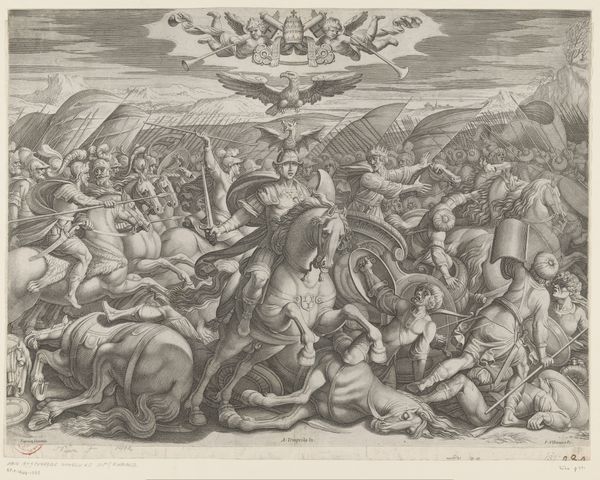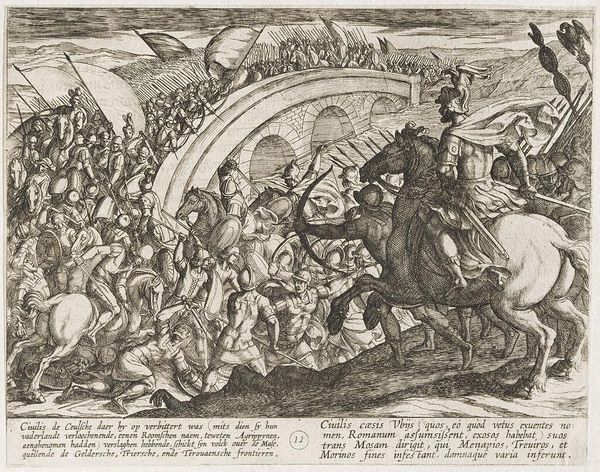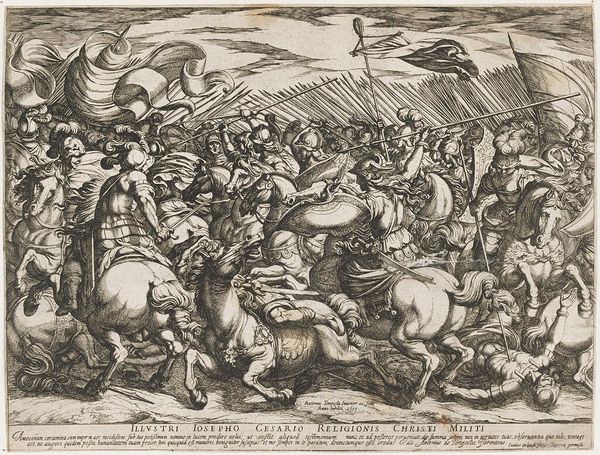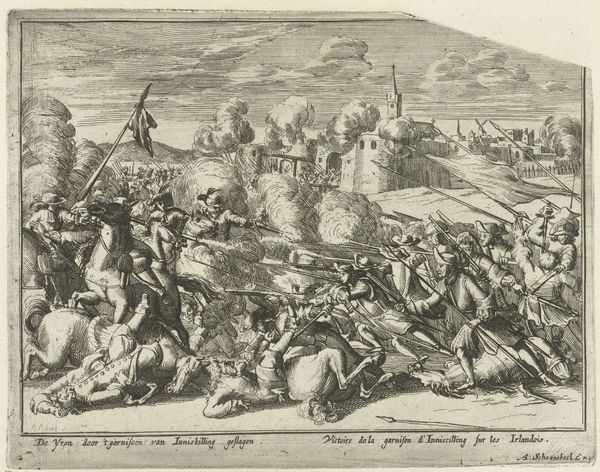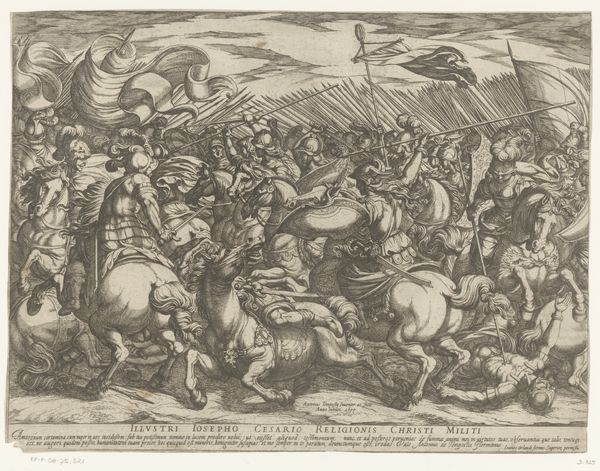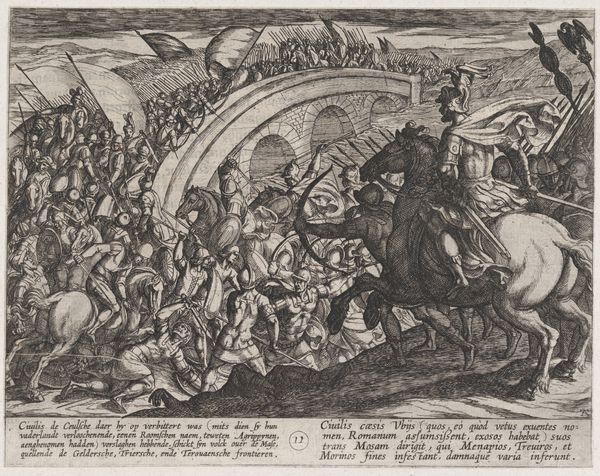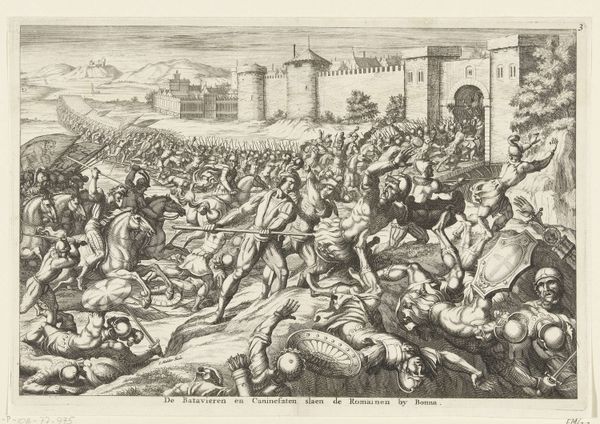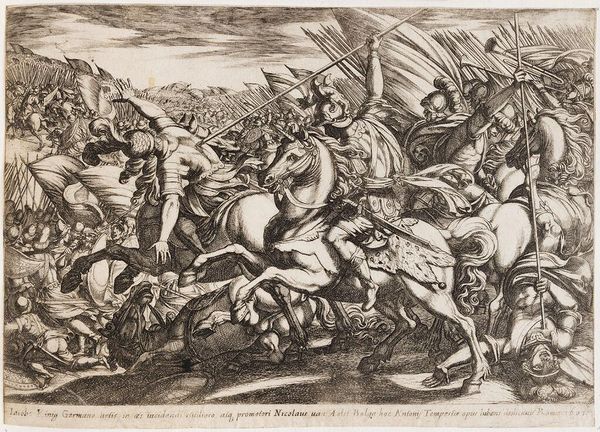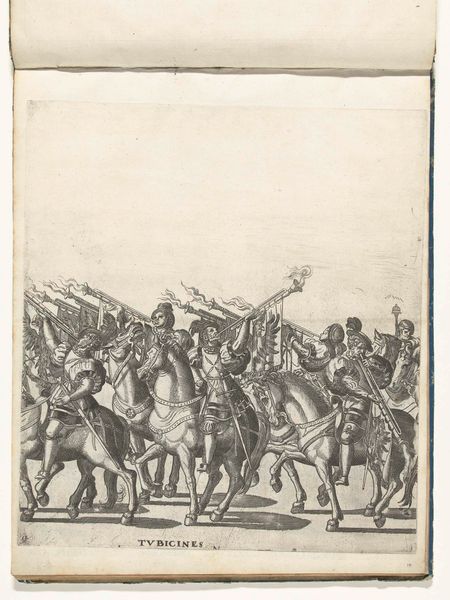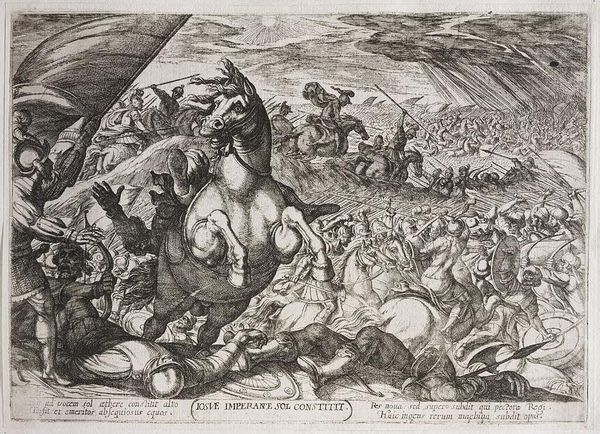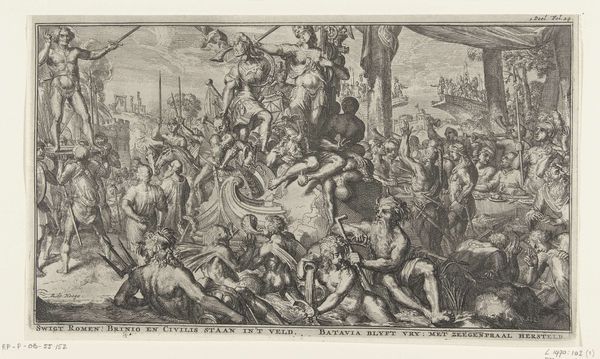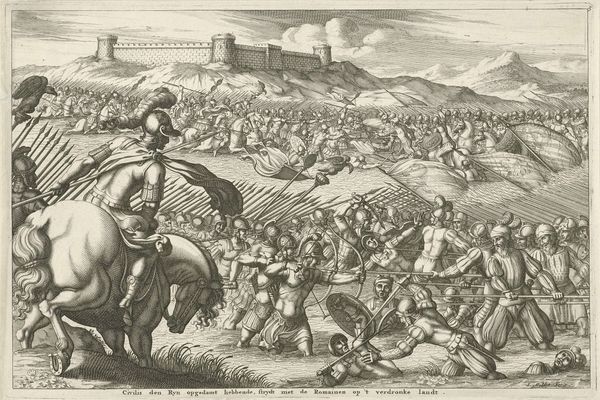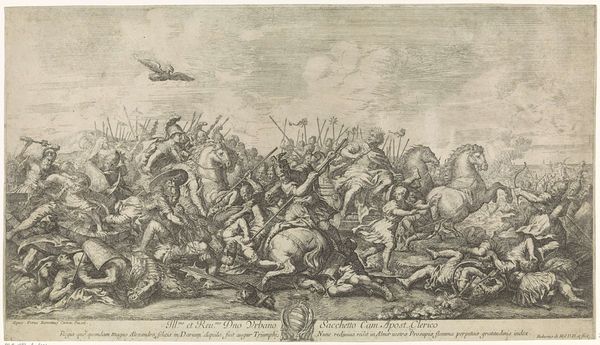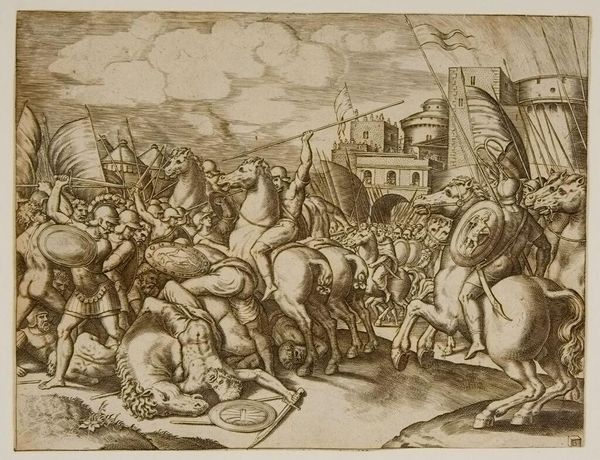
engraving
#
narrative-art
#
baroque
#
landscape
#
figuration
#
history-painting
#
engraving
#
realism
Dimensions: height 217 mm, width 332 mm
Copyright: Rijks Museum: Open Domain
Curator: This print, created in 1684 by Joseph Mulder, depicts “Troops of Civilis Crossing the Meuse.” Editor: My goodness, it's chaos! An entire, surging epic rendered in lines. It almost feels like looking into a tightly-packed anthill of violence, if that makes sense. Curator: It does! It captures a pivotal moment in history—the Batavian revolt against Roman rule in 69-70 AD, rendered in this swirling baroque style, don’t you think? I feel a real tension between meticulous detail and dynamism here. Editor: Oh, absolutely! The figures almost burst off the page, yet everything, down to the last spearhead, is delineated. For me, the bridge functions like an ancient hourglass. It is spilling out soldiers onto the other side and, metaphorically, into a new historical era. A symbolic threshold if you will. Curator: I love the "hourglass" reading. Look at Civilis himself, so poised on horseback amidst the fray. The artist clearly used line quality, along with relative sizes, to emphasize his control. Yet it's difficult to say exactly how accurate all the historical elements are depicted, isn’t it? Editor: True, artists had to interpret accounts in ways that made symbolic and emotional sense to audiences. This rendering romanticizes Civilis. I read the bridge itself—especially when it carries a uniform mass of soldiers– as symbolic of collective will and the engineering ingenuity associated with the Romans. The artist is playing with those notions in complex ways here. Curator: That’s insightful. Perhaps, at the time it was made, viewers could use the imagery to examine contemporary ideas about national identity. Looking closely like this can open some fascinating historical pathways. Editor: Indeed. We started with chaos and found order, meaning, and so much historical memory etched into every single line!
Comments
No comments
Be the first to comment and join the conversation on the ultimate creative platform.
